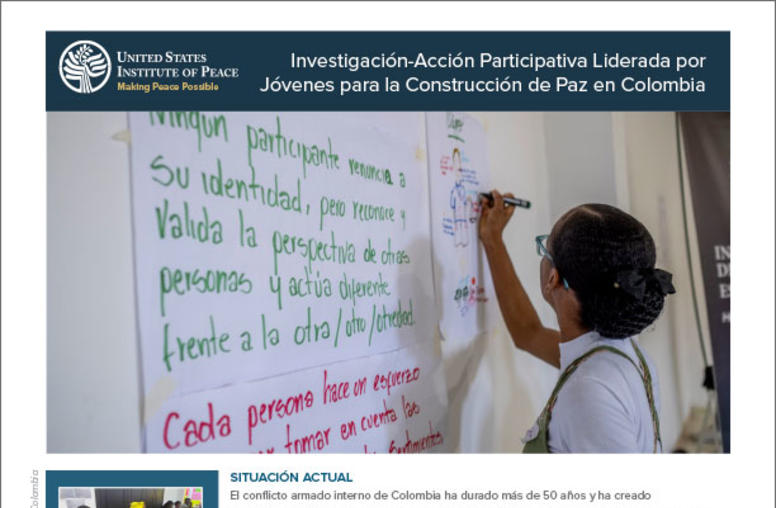Protecting Refugees and IDPs in the Americas: Update on the Mexico Plan of Action
This event, co-sponsored by USIP, Refugees International, and the Refugee Council USA, analyzed the roots and consequences of the crisis, the frameworks that are emerging for its resolution, and the responsibilities of governments, civil society, and international donors as elaborated within the frame of the 2004 Mexico Plan of Action and Declaration.
The issue of displacement in Latin America has reached crisis proportions. With between 3.6 million and 5.2 million displaced persons throughout the region and a pattern of ongoing displacement, the search for durable solutions is more urgent than ever. What are the roles of civil society, regional governments, and international donors in addressing this crisis?
This event, co-sponsored by USIP, Refugees International, and the Refugee Council USA, analyzed the roots and consequences of the crisis, the frameworks that are emerging for its resolution, and the responsibilities of governments, civil society, and international donors as elaborated within the frame of the 2004 Mexico Plan of Action and Declaration. The event marks the launch of a new book based on last year’s Regional Humanitarian Conference in Quito, Ecuador, that brought together local and international civil society with regional governments and international donors to assess the implementation of the 2004 Plan and Declaration. Panelists will address the causes of forced displacement and integrated solutions and policies for its mitigation. They will discuss the short and long-term strategies being used to address the roots of the crisis and associated violence, and will discuss how displaced families can be more effectively supported.
Speakers
- David Robinson, Interim Assistant Secretary
Bureau of Population, Refugees and Migration, U.S. Department of State - Michel Gabaudan, President
Refugees International - Zully Laverde, Director
Ecuador Office of CODHES - Buti Kale, Deputy Representative
Office of the United Nations High Commissioner for Refugees - Fernando Ponce Leon, S.J., Director
Jesuit Refugee and Migration Service, Latin America - Melanie Nezer, Senior Director, U.S. Policy & Advocacy
Refugee Council USA - Virginia Bouvier, Moderator
Senior Program Officer, USIP Centers of Innovation
Explore Further
- View the Event: Saving Lives, Securing Interests: Reflections on Humanitarian Response and U.S. Foreign Policy
A Talk by Eric P. Schwartz, Former U.S. Assistant Secretary of State for Population, Refugees, and Migration - Read Refugees and IDP's after Conflict : Why They Do Not Go Home by Patricia Weiss Fagen


